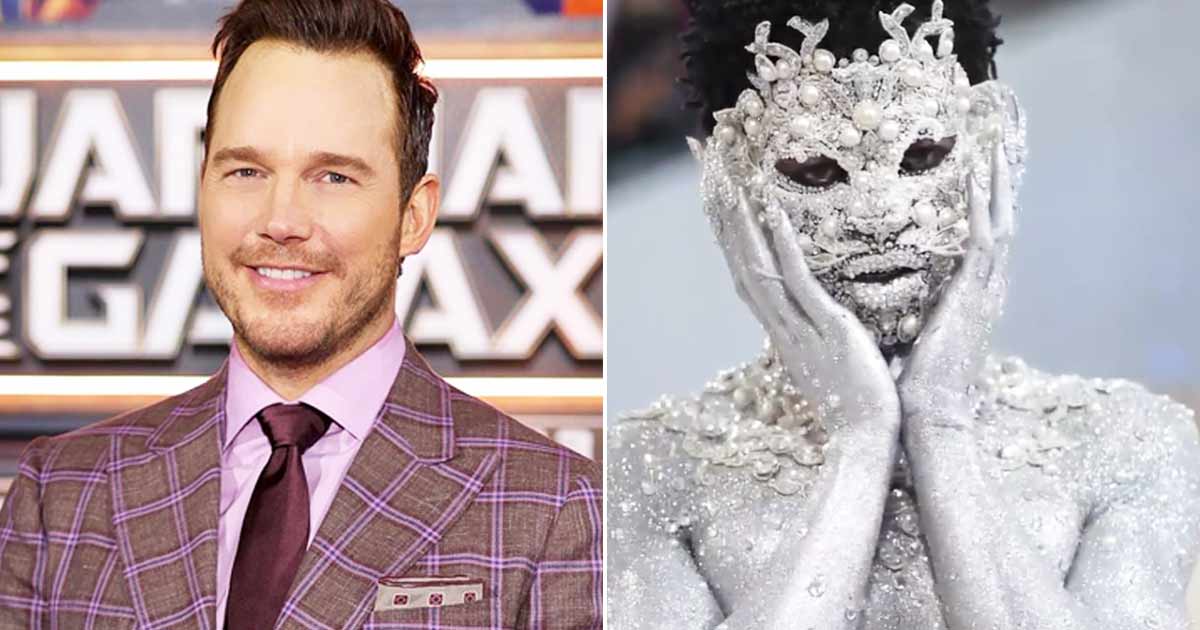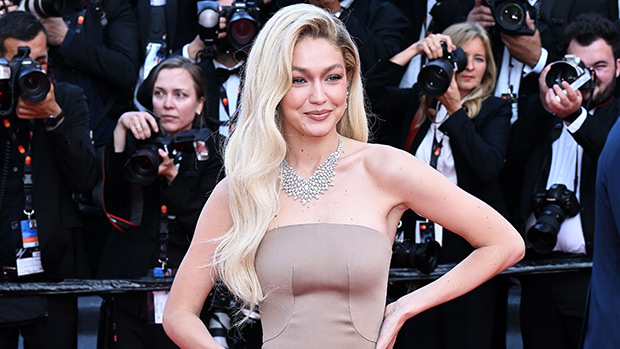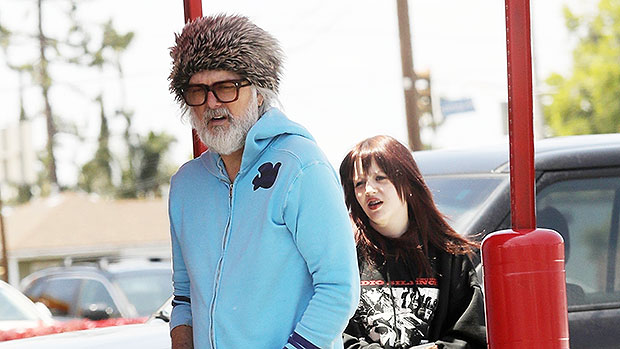Martin Mull (proper) and Fred Willard on the 1995 ‘Roseanne’ episode “December Bride.”
Photofest/ABC
Published
2 days agoon
By
gosepnews
Martin Mull, the droll comic, actor, singer-songwriter and painter who discovered fame on the cleaning soap opera satire Mary Hartman, Mary Hartman and its spinoff Fernwood 2 Evening, has died. He was 80.
Mull died Thursday at house after a “valiant fight against a long illness,” his daughter, Maggie Mull, shared on her Instagram.
“He was known for excelling at every creative discipline imaginable and also for doing Red Roof Inn commercials,” she wrote. “He would find that joke funny. He was never not funny. My dad will be deeply missed by his wife and daughter, by his friends and coworkers, by fellow artists and comedians and musicians, and — the sign of a truly exceptional person — by many, many dogs. I loved him tremendously.”
Mull additionally loved prolonged stints within the Nineteen Nineties because the befuddled principal Willard Kraft on Sabrina, the Teenage Witch and as Leon Carp, the homosexual boss and pal of Roseanne Connor (Roseanne Barr), on Roseanne.
He performed personal detective (and grasp of disguise!) Gene Parmesan on Arrested Growth and a pharmacist who wasn’t above sampling his product on Two and a Half Males. He earned his solely Emmy nomination in 2016 for his efficiency as political operative Bob Bradley on Veep.
The intelligent Mull starred with frequent collaborator Fred Willard and co-wrote the 1985 Cinemax mockumentary The Historical past of White Individuals in America and its 1986 sequel. He additionally portrayed Colonel Mustard on the large display in Clue (1985). Extra not too long ago, he was one of many outdated guys on the Fox sitcom The Cool Youngsters and an acid-tripping lawyer on Netflix’s The Ranch and recurred on ABC’s Not Lifeless But.
Combining his knack for music and comedy, Mull discovered early success in 1970 when nation music star Jane Morgan recorded his parody “A Girl Named Johnny Cash,” a riff on Money’s “A Boy Named Sue.” It caught round on Billboard’s Sizzling Nation Songs chart for 5 weeks.
Mull went on to play the guitar in nightclubs and sing parodies he wrote, pop tunes like “Santa Doesn’t Cop Out on Dope,” “Loser’s Samba” and “Jesus Christ Football Star.” He opened for the likes of Frank Zappa, Randy Newman, Bruce Springsteen and Billy Joel, and his eponymous first album, launched in 1972 on Capricorn Information, featured drummer Levon Helm of The Band.
“While his peculiar sense of humor is evident on all of his albums, Mull is no Weird Al-style parodist,” Stewart Mason wrote concerning the offbeat performer on the AllMusic.com web site. “His albums are skewed singer/songwriter, pop/rock with a strong jazz influence, which just happen to have funny lyrics.”
Nonetheless, it was as Garth and Barth Gimble, the very totally different similar twins from Fernwood, Ohio — the legendary setting for the Norman Lear-produced Mary Hartman, Mary Hartman — that positioned Mull within the nationwide highlight.
Designed to poke enjoyable at America’s obsession with consumerism and popular culture, Mary Hartman starred Louise Lasser as an unassuming housewife making an attempt to not lose her thoughts within the banal hell often called suburbia. Mull joined the syndicated collection in 1976 for its second season and shortly turned one in all its most despised characters — the wife-abusing Garth.
“I thought they hired me because I was a comedian,” Mull mentioned in a 2014 interview. “I was kind of surprised when all of a sudden we got all this Virginia Woolf-ish high drama. I didn’t like the character at all. I don’t care for violence, and wife-beating is particularly repugnant to me, so it was quite hard.”
Regardless of Mull’s reservations, his razor-sharp comedian timing and sly, off-center method made Garth work. Audiences cringed however laughed when Gimble locked his spouse within the closet after which kissed the closet door as he left for work.
Al Burton, the collection’ inventive supervisor who employed Mull, figured he can be excellent for the controversial character. “Martin is one of a kind,” he mentioned. “He has this unique hateful quality while still being an appealing performer.”
Although Garth appeared in solely a handful of the present’s 325 episodes, he went out with a bang. In some of the macabre plot twists in TV historical past, he met his finish by being impaled on the star atop an aluminum Christmas tree in his closet.
However Mull’s keep in Fernwood was simply getting began. Within the final month of the collection’ run, he reappeared as Barth Gimble, a smarmy kind who had bother adjusting to small-time life. For causes by no means fairly revealed (it was hinted his state of affairs concerned an underage woman in Miami), Barth determined it greatest to put low in Fernwood.
When Mary Hartman led to 1977, Lear created the spinoff Fernwood 2 Evening. Produced by Alan Thicke, it featured Barth as a leisure suit-wearing discuss present host whose unbearable ego had him believing he was the Tri-County’s reply to Johnny Carson.
Becoming a member of the present was Gimble’s sidekick, Jerry Hubbard (Willard). A lot to Gimble’s fixed annoyance, Hubbard was the epitome of cluelessness. When a feminine visitor introduced the dialogue round to gynecology, Hubbard innocently requested if a treatment had been discovered for that.
“Barth would host the town’s premiere talk show, bringing on guests to recall their UFO sightings and anchoring segments such as ‘Talk to a Jew,’” Rolling Stone wrote in 2015. “Martin Mull and Fred Willard don’t get nearly enough credit as a crack comic duo, and the show’s skewering of the format’s cliches — made to seem even cheesier by the public-access production values — set the pace for the faux-sincere showbiz parodies and fake late-night programming (see Larry Sanders) that would become a comedy staple in the years to come.”
Fernwood 2 Evening turned a cult hit, and plenty of of Lear’s associates requested to be on it. The producers couldn’t work out a option to make sense of all these well-known of us exhibiting up in a small Ohio city, in order that they moved the present to the fictional Alta Coma, California, the “unfinished furniture capital of the world.” Renamed America 2-Evening, the present now had Gimble and Hubbard interviewing Burt Lancaster, Carol Burnett, Charlton Heston and Jim Nabors.
Martin Mull (proper) and Fred Willard on the 1995 ‘Roseanne’ episode “December Bride.”
Photofest/ABC
Martin Eugene Mull was born in Chicago on Aug. 18, 1943. His father, Harold, was a carpenter, and his mom, Betty, an actress and director. He was raised in North Ridgeville, Ohio, and New Canaan, Connecticut.
His unique plan was to grow to be a painter, and he studied on the Rhode Island College of Design, receiving a bachelor’s diploma in advantageous arts and a grasp’s in portray. To earn cash for tuition, Mull organized bands, and the expertise opened his eyes to the world of leisure.
His first album included the songs “Ventriloquist Love” (pattern lyric: “Whenever I kiss you / your lips never move”) and “I Made Love to You in a Former Life.” He adopted that with a 1973 dwell LP, Martin Mull and His Fabulous Furnishings in Your Dwelling Room!! — which additionally featured Mull doing stand-up bits — and 1974’s Days of Wine and Neurosis.
Mull was really useful to Lear after somebody noticed him at a nightclub efficiency.
After his preliminary TV success, Mull was signed by ABC Information, which launched his albums I’m Everybody I Ever Beloved and Intercourse and Violins, which earned a Grammy nomination in the most effective comedy recording class and was produced by Frank DeVol, who performed bandleader Completely happy Kyne on Fernwood 2 Evening.
He created (with Steve Martin and Craig Kellem) and starred as a Seattle tv commentator on the CBS sitcom Home Life, but it surely lasted simply 10 episodes in 1984. He lasted longer on Roseanne, on which Leon in 1995 married a personality performed by Willard in one in all TV’s first homosexual weddings.
Mull additionally had recurring roles on The Jackie Thomas Present, The Ellen Present, Dads, Life in Items and American Dad!, amongst different exhibits.
He starred alongside Tuesday Weld in Serial (1980), directed by Invoice Persky, appeared as himself in Robert Altman’s The Participant (1992) and confirmed up in such different movies as FM (1978), Mr. Mother (1983), O.C. and Stiggs (1985), Far Out Man (1990), Mrs. Doubtfire (1993), Jingle All of the Approach (1996) and Killers (2010).
Survivors embody his third spouse, Wendy Haas, whom he married in 1982, and Maggie, a TV writer-producer (Life in Items).







